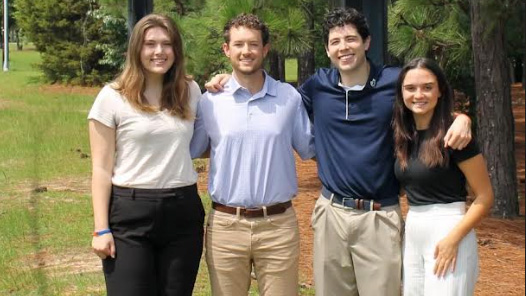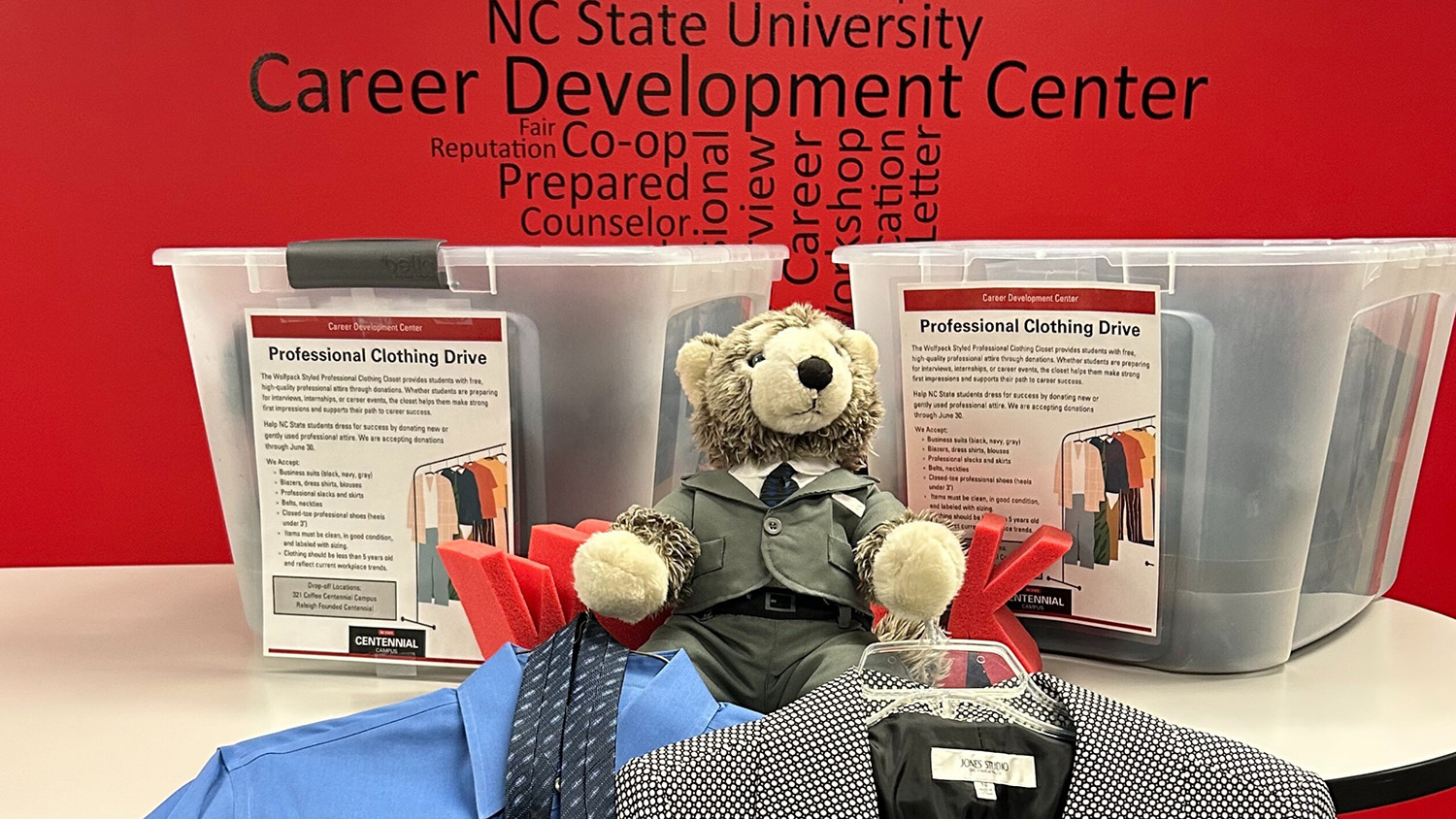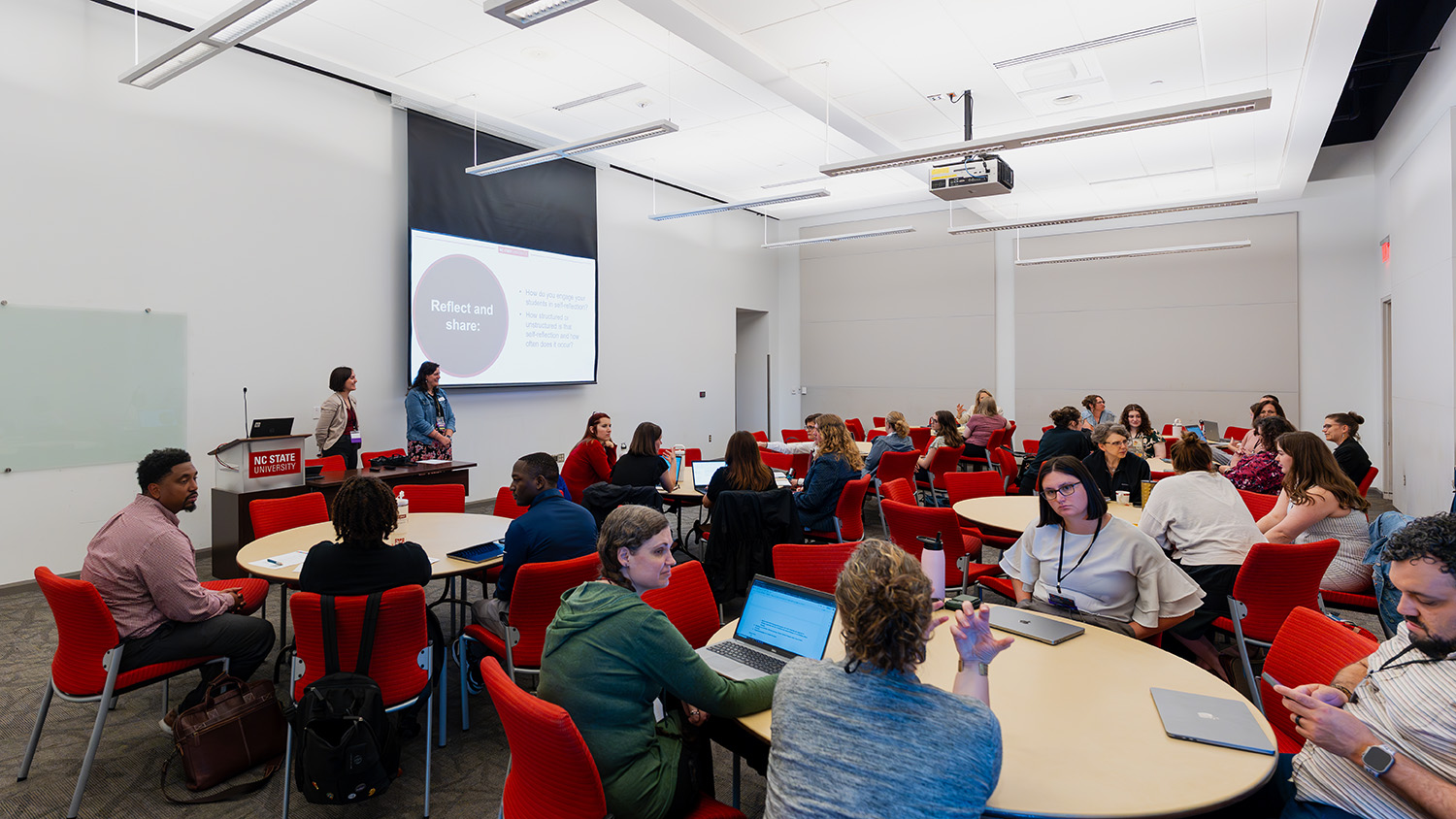The Honors Program’s Community-Based Research Lab: The Pack Giving Back
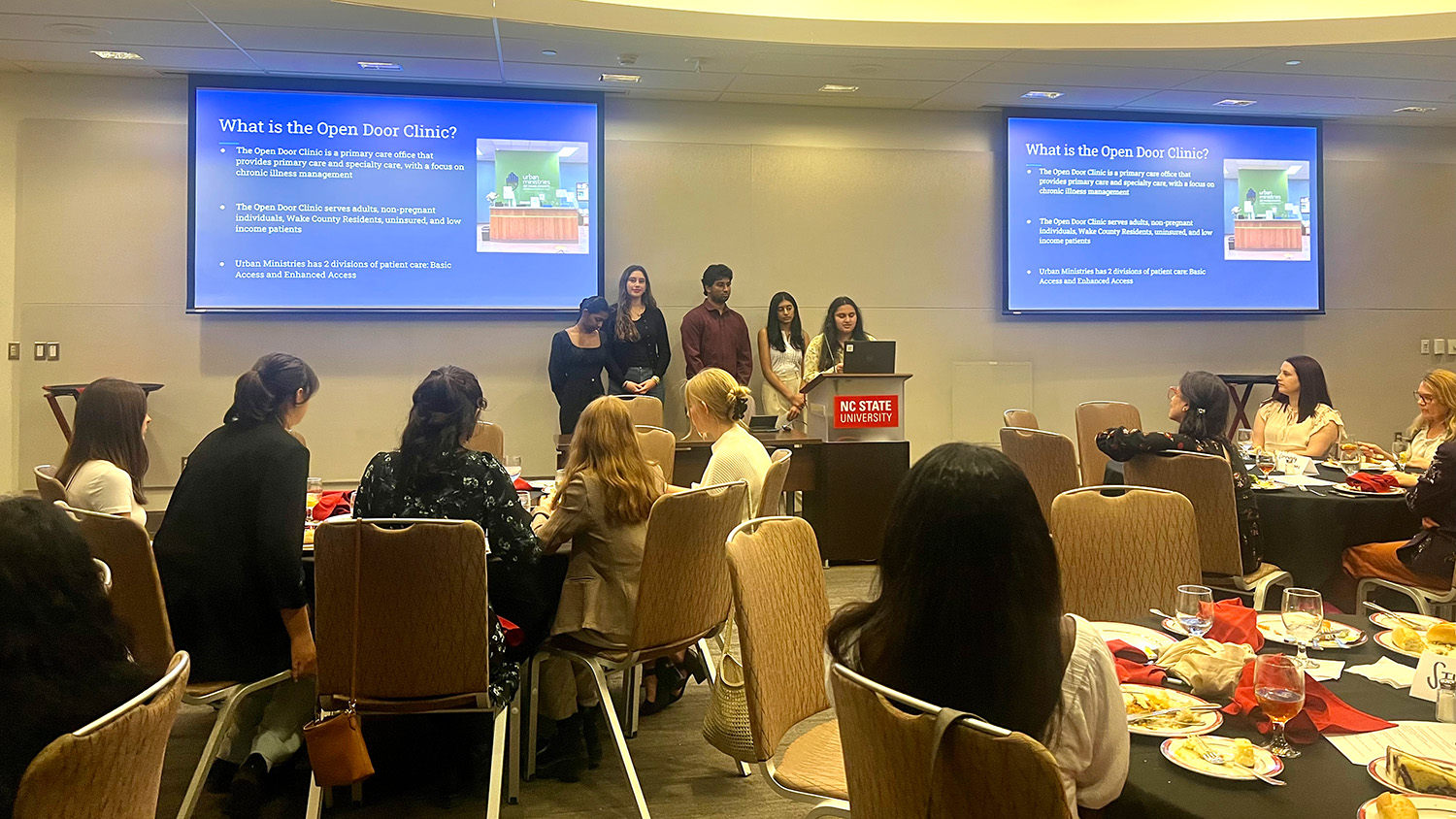
A research model where the needs of a community are prioritized – providing nonprofits and populations in need with the opportunity to share their stories, have their voices heard, and contribute to the outcomes of academic research that will directly impact their lives – this is the premise of community-based participatory research.
Participatory research is a form of study in which those who will be affected by a given research project are also active participants in the collection, analysis, and actions associated with the project. Community members and relevant stakeholders are involved every step of the way, with researchers focusing on how they can improve existing systems based on their interactions with the community.
They make conscious efforts to remove their own biases and stereotypes from their conclusions, to ensure they are doing what is best for the community they are serving. This research, with a focus on representation, is essential for ensuring the success and quality of the project.
This innovative model of social science research was showcased in the Honors Program during the spring 2024 semester, spearheaded by Tatiana Rabinovich, scholar in residence for the Honors Village and an Assistant Teaching Professor in the Department of Interdisciplinary Studies within the College of Humanities and Social Sciences at NC State University, in her Community-Based Research Lab (CBRL), a semester-long high impact experience opportunity for residents of the Honors Village and members of the University Honors Program.
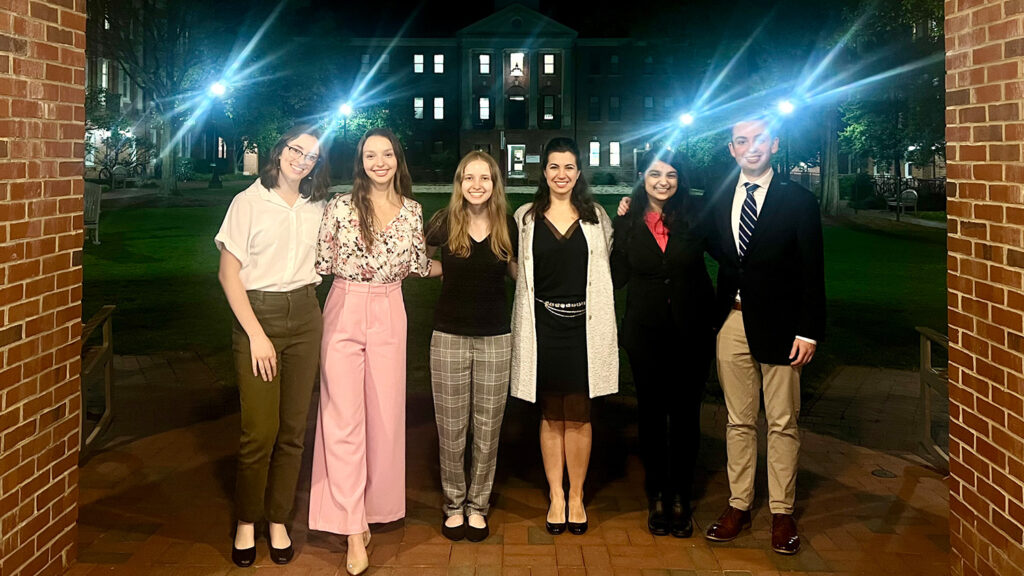
In building the CBRL project, Rabinovich was assisted by Adah Freeman, Lindsey Frye, Patrick Finkbiner, Savannah Smith, and Priya Chilukuri, who not only played instrumental roles in developing the CBRL program, but also in sustaining it by serving as peer mentors for the program’s participants.
After taking the entirety of the fall 2023 semester to plan the CBRL project, which involved coordinating with local nonprofits, gauging student interest, and planning the logistics, Rabinovich and her team were excited to welcome twenty five Honors Program students living in the Honors Village to the project.
After working through three preparatory workshops on the methods of conducting research in the social sciences with Rabinovich, the students were put into groups and partnered with various community organizations, depending on their individual interests.
The community partners engaged in the CBRL project were Climate Action NC, the US Committee for Refugees and Immigrants (USCRI), Urban Ministries of Wake County (specifically the Food Pantry and the Open-Door Clinic), and the Women’s Center of Wake County.
Climate Action NC is an organization that states its purpose as “a project of the NC League of Conservation Voters that uses grassroots organizing to turn environmental issues into priorities.” This group focuses on sustainability, social education around climate change and encouraging people to take action toward a more sustainable feature.
The USCRI describes itself as “a nongovernmental, not-for-profit international organization dedicated to addressing the needs and rights of refugees and immigrants.” They provide legal, social and health services to refugees and unaccompanied migrating children, and trafficking survivors while advocating for the rights of these groups internationally.
The Urban Ministries of Wake County are a group focused on serving those experiencing food insecurity and homelessness. They describe their mission as “responding to our neighbors in crisis by providing basic needs – food, medicine and shelter. We strive to look beyond the moment – helping our clients, patients, shoppers, and guests build a higher quality of life.” They provide a food pantry and shelter for those in need, as well as community support services.
The Women’s Center in Raleigh is the only day shelter in Wake County for women who are experiencing homelessness. They describe their mission as “using evidence-based practices to provide stability and housing to single women experiencing homelessness.” To provide stability, the Women’s Center in Raleigh also provides crisis intervention services, healthcare interventions, clinical and case management, educational resources and group mutual aid and recovery programs.
The preparatory workshops led by Rabinovich focused on human-centered research, research methods such as participant observation and interviewing, and research design. These workshops focused on teaching students how to engage with community partners by collaborating with them on research agendas and practical application of research findings.
For students new to research, or new to research in the social sciences, these workshops were an opportunity to begin thinking outside the box about how to impact the community they would be working with. Some questions answered during these workshops included: “What does it mean to engage with partners, while observing and participating in their work,” “How do we conduct meaningful and insightful interviews,” and “How does one define and create a project in collaboration with others?”
The hard work of the Honors students who participated in the CBRL has been designed to outlast their time at NC State. For Jenny Peters, at the time a first year Psychology major, a long-term connection with The Women’s Center was established after her group learned about the shortage of volunteers that the shelter was facing.
When asked how her participant observation affected the outcomes of her work, she stated: “After speaking to the staff on what, in each of their opinions, the Women’s Center would benefit from, they all voiced concern for the need for more volunteers… We decided the most impactful way we could help was by attempting to set up a connection for volunteers from the Women and Gender Studies program at State, in the hopes of gaining a steady flow of volunteers for the Women’s Center, something that will hopefully last longer than each of our times at State.”
Another goal of the program was an expanded worldview for participants. It is one thing to know one’s community, but another to actively contribute to its betterment.
For Natalie Terry, at the time also a first year psychology major, working with The Women’s Center allowed her to confront personal biases that often affect the treatment of women going through hard times. “The Director of Clinical Services at the Center was our main contact. From the very first time we met with her, she emphasized that the women who utilize the shelter are no different from any of us except that they do not have an emergency contact for when something goes wrong. This statement stood out to me because it sounds like a very simple concept except the result was much more complex. It also made our group take a step back and assess any judgments or biases we had about the clients of the center.”
Partnering with another organization, the USCRI, Sonia Pereira, at the time a third-year double major in global sustainability and development and german studies, came to a similar conclusion. Her experience with the USCRI enabled her to study what infrastructure is necessary for the success of refugees, as well as how organizations could take local and national actions to improve the opportunities available to refugees.
This applied experience also served as an opportunity for her to consider how various social factors could influence how refugees are treated in the United States: “Researchers need cultural context and a trauma-informed perspective to understand and improve refugee integration outcomes, not just the data. I am interested in a career in refugee policy making and will seek experiences where I can interact with the people behind the research before drawing conclusions from the data.”
The CBRL enabled Honors students to reimagine their roles in their communities, as well as their future work. Many students gained life skills that they will utilize in their daily lives, regardless of their field of study.
For engineering student Jenna Leek, CBRL was initially a program that she joined to experience the world outside of engineering. She had the opportunity to collaborate with Climate Action NC, where she worked on coordinating organizational efforts.
Her takeaway emphasized the value of interdisciplinary collaboration, but also of showing appreciation for the work of others, regardless of one’s personal beliefs. “I learned how hard social work and climate programs can be to organize and progress. Although it is easy to point out flaws in someone else’s work, it doesn’t mean their work is actually easy. We should be much more appreciative of people who dedicate their lives to bettering society, as they don’t get enough recognition from the outside world or each other sometimes!”
Regardless of the community partners that the students volunteered with, they all had a positive impact on the local community. Students not only learned about themselves, but also gained invaluable knowledge in conducting community-based research, developing growth mindsets, and approaching the world with empathy and curiosity rather than critique.
As this program continues with a Spring 2025 cohort, it will undoubtedly play a critical role in shaping how students engage in research across disciplines, but particularly when considering how their work might affect various groups.
In the words of Rabinovich, “This kind of research is very important socially, ethically, politically, that our students do research not on our partners, but in collaboration with these partners. That builds important bridges between our students and our community partners and the populations that they serve. The humanistic social sciences have so much to offer in terms of shaping new horizons of research that is much more collaborative, ethical science.”
- Categories:
